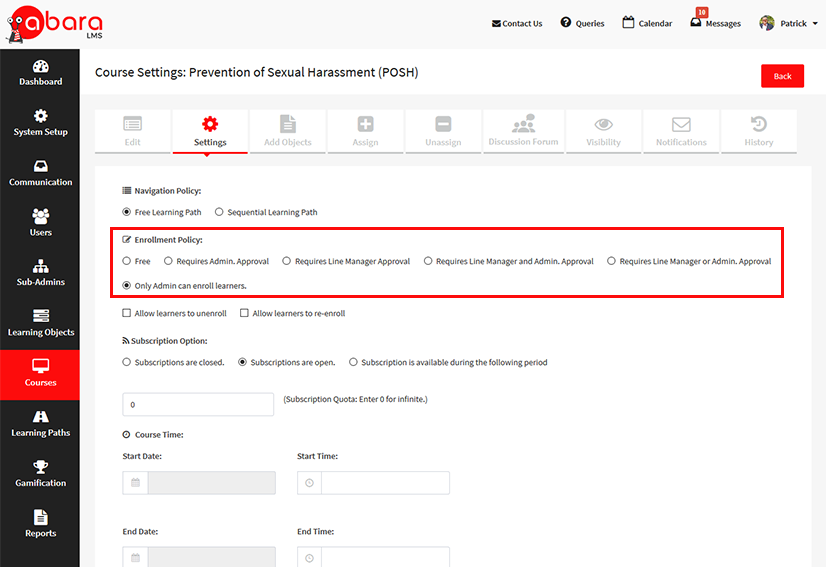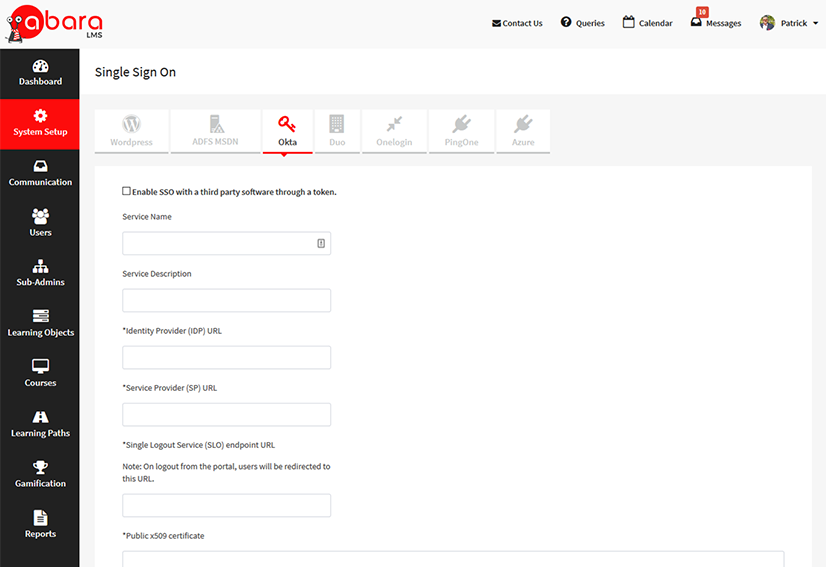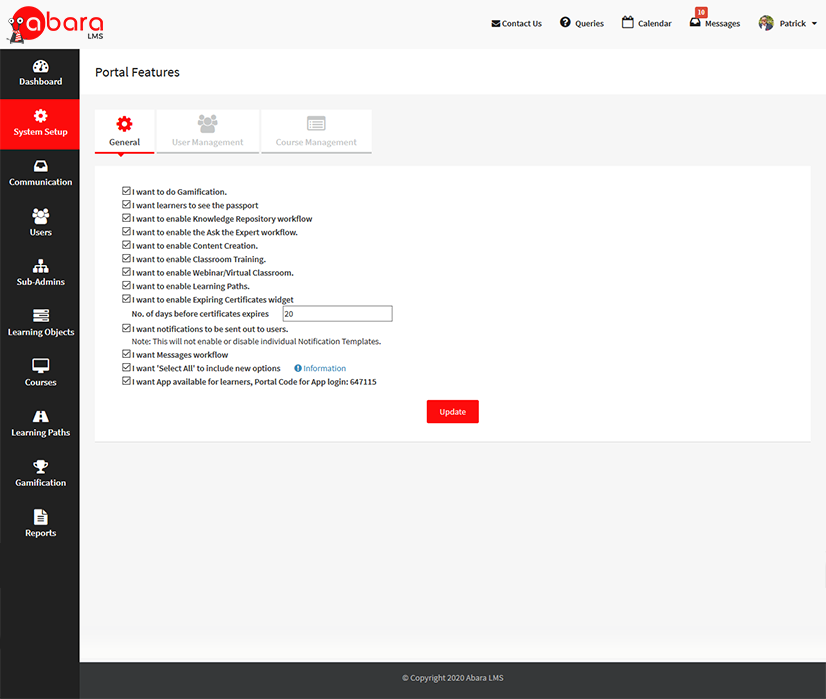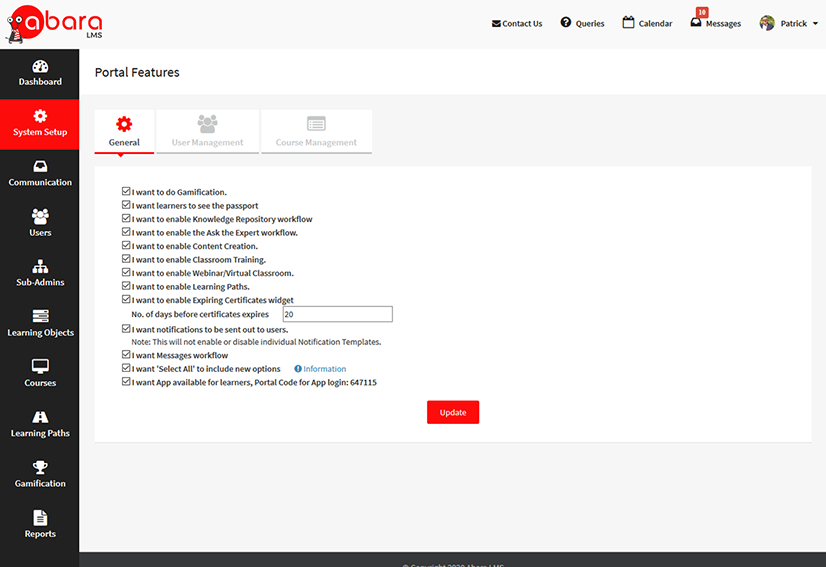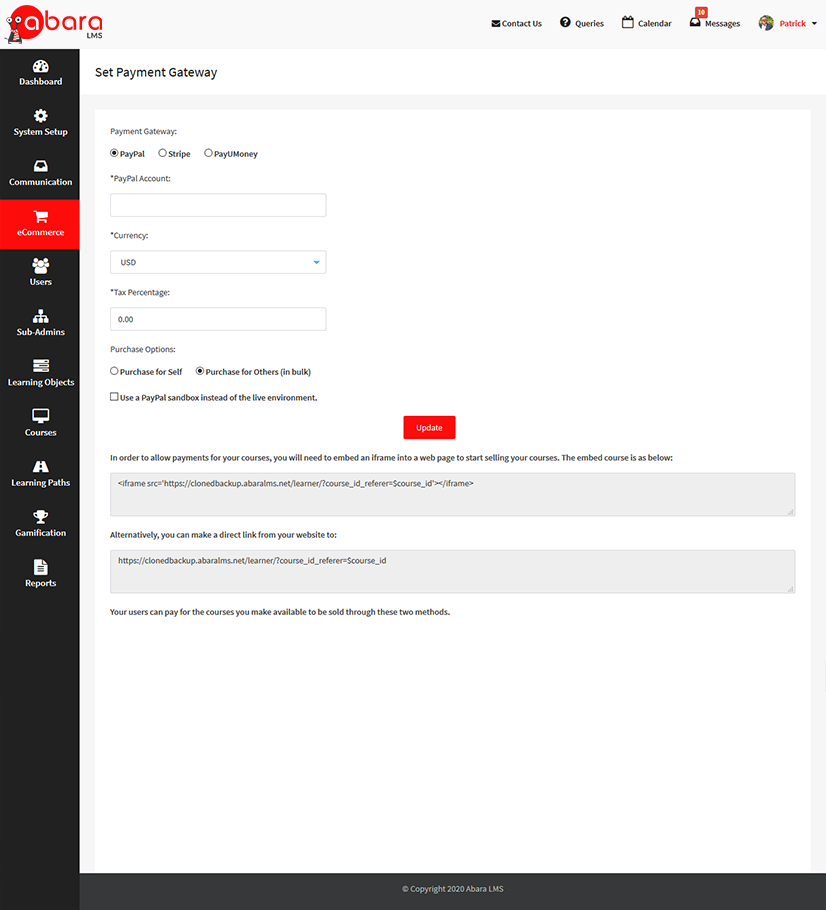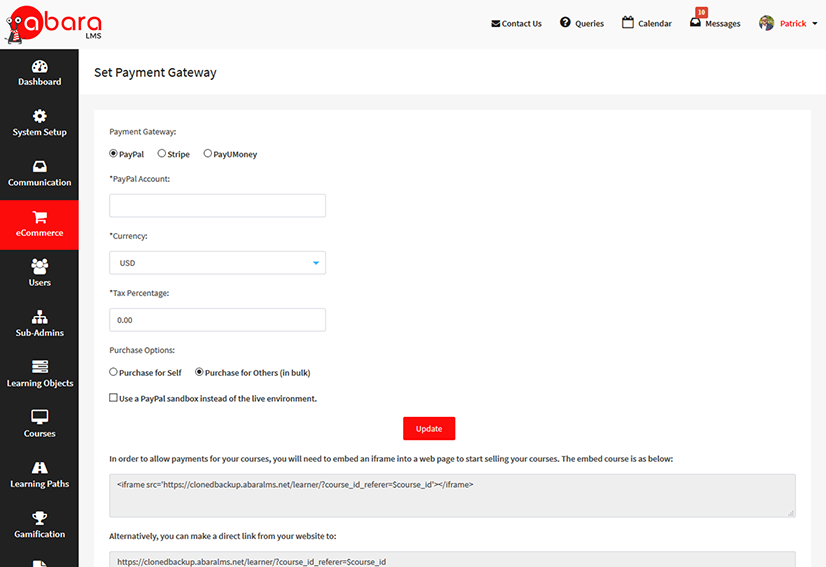SAAS-BASED LMS FEATURES
Abara’s SAAS-based LMS features allow administrators to add digitally-enabled training content, manage that content, deploy, and distribute the course content, thus encouraging learning with ease.
Abara’s SaaS-Based LMS features are extensive and enable organizations to easily leverage control over the platform’s functionality.

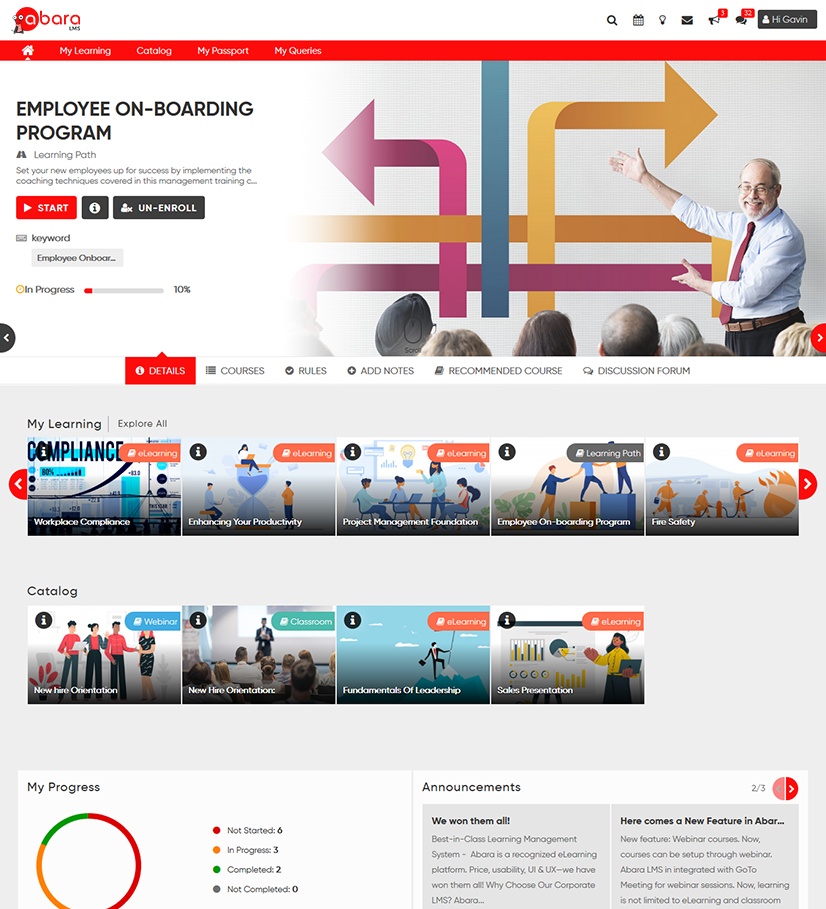
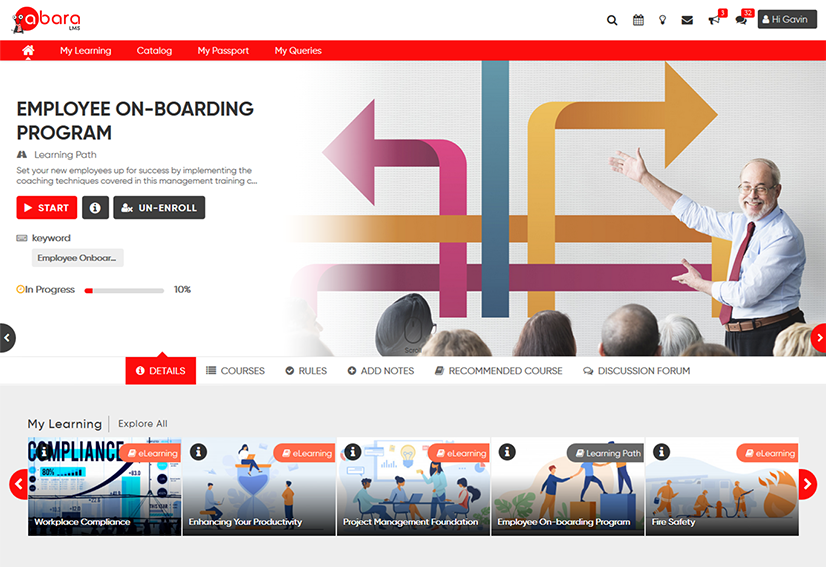
CORE LMS FEATURES
Multi-tenant or multi-portal LMS architecture:
- Single portal by default
- Multiple portals on request
Unlimited storage for:
- Learning objects and courses
- Administrators
- Bandwidth
HTTPS/SSL certificate supported
Custom domain/URL setup
White-labeling on request
Google Analytics code embedding
Mobile app for learners
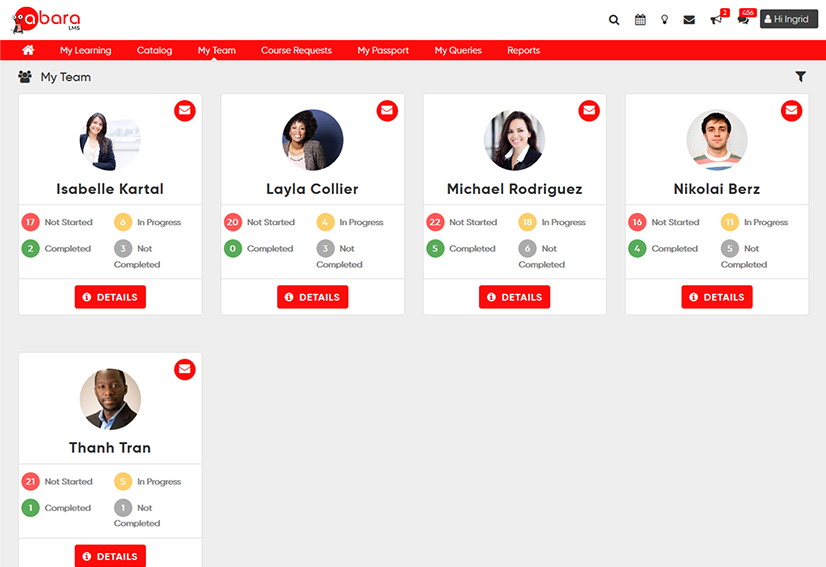
USER MANAGEMENT FEATURES
Define and set up organization structure
- Sub-administrators
- Reporting Managers
- Learners
- Instructors (Internal and External)
- Experts
Delegate administrator responsibilities
Self-registrations via emails
Create custom fields (user meta data/segmentation)
Define groups
Import users
Invite learners
Define power user roles

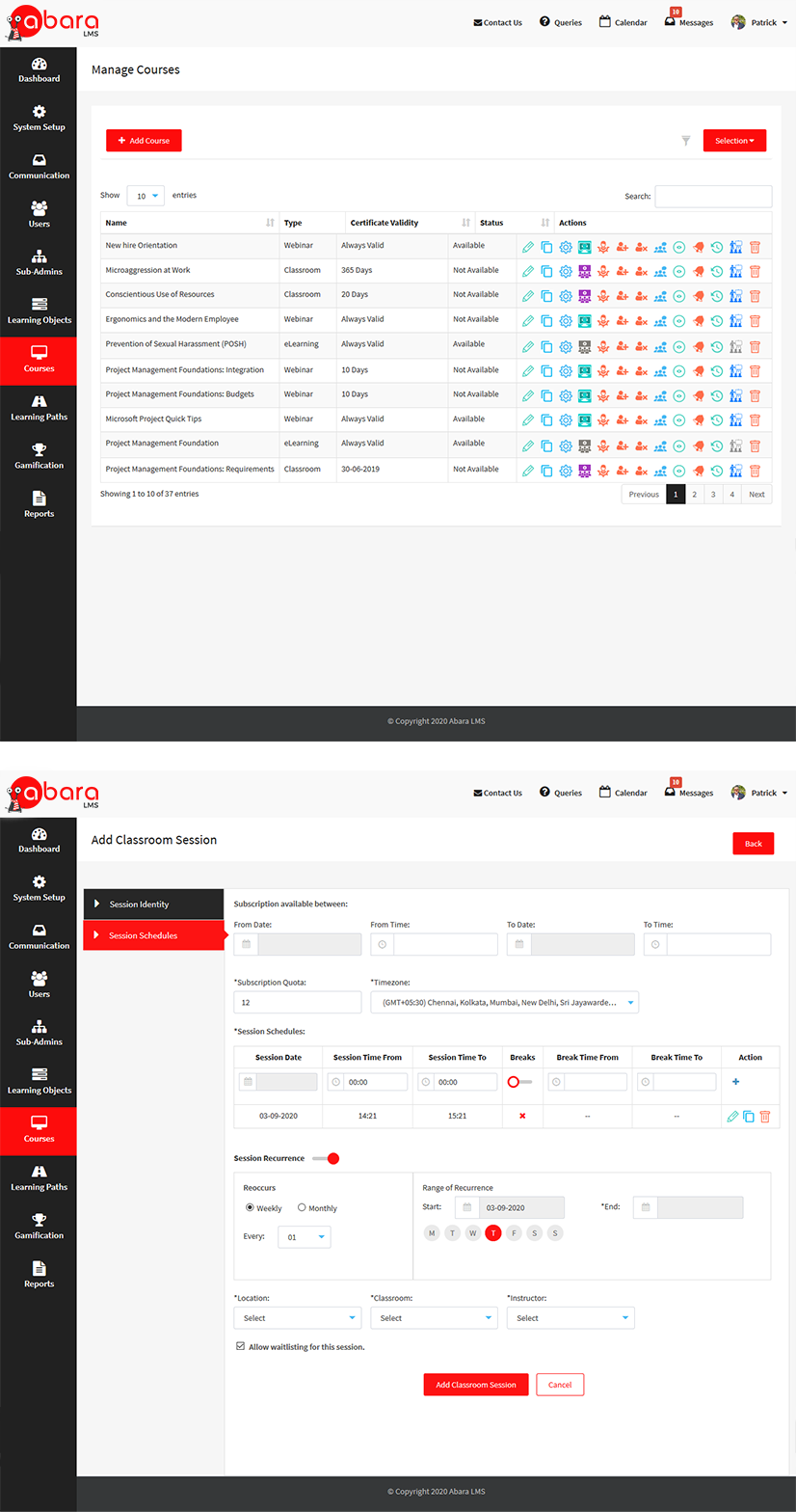
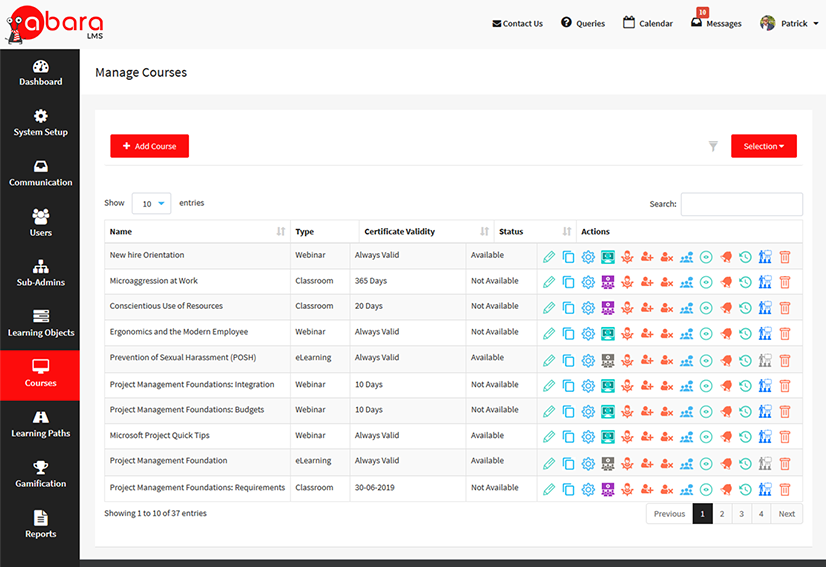
COURSE MANAGEMENT FEATURE
Supported learning modes
- eLearning
- Classroom (ILT)
- Virtual Classroom (vILT)
Supported learning objects
- SCORM 1.2/2004
- Video files
- PowerPoint/Word files
- PDF files
- External links (URLs)
- YouTube links
- Multiple-choice questions
- Multi-select questions
- Short answer questions
- Match the following questions
Surveys
- Single answer
- Multiple choice
- Open-ended
Course creation management
- Recurring classroom courses
- Re-usable learning assets
- Mandatory and optional training
Learning path abilities
- Blended eLearning (Combination of eLearning + ILT + vILT)
Course categorization
Keyword-based search
- Knowledge Repository
- Quick reference
- Performance support
- Document management
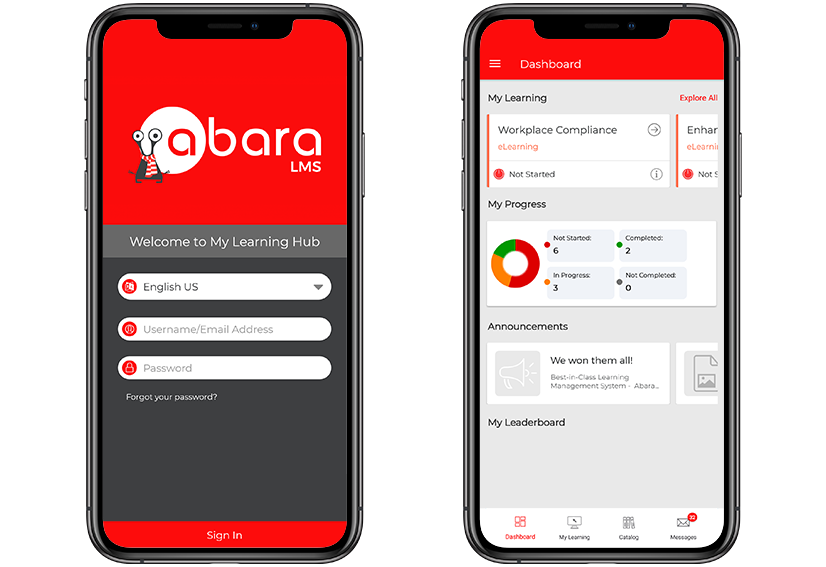

MOBILE APPLICATION FEATURES
Mobile applications (learner-side application only)
- iOS App Store
- Android Play Store
- Offline learning
- SCORM packages
- Videos
- Documents
Launch HTML5 mobile packages
- Push notifications
- Messages
- Announcements
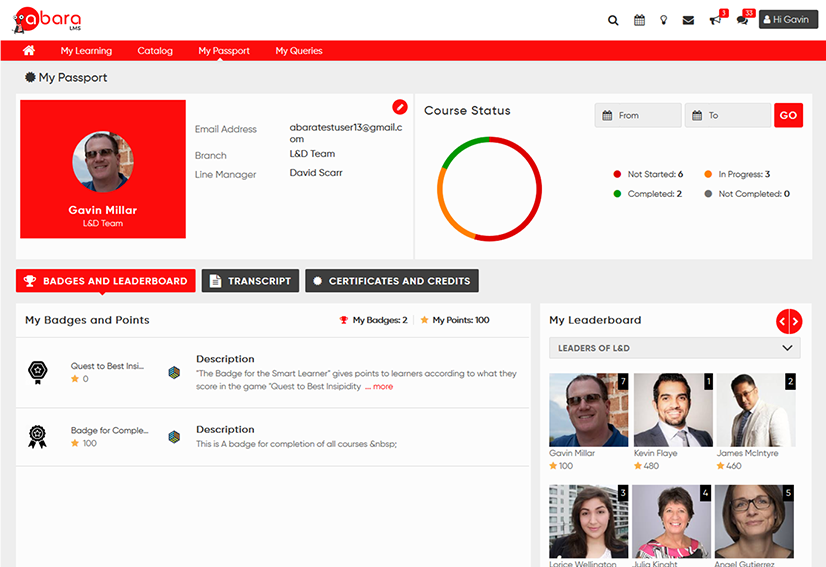
LEARNER ENGAGEMENT FEATURES
Learner dashboard views
- Profile
- Quick links
- Calendar
- Enrolled courses
- Catalog courses
Course progress
Certificates (plus External Certificate management workflow)
Leaderboards
Points
Badges
Open Mozilla badges
Enrolment widgets

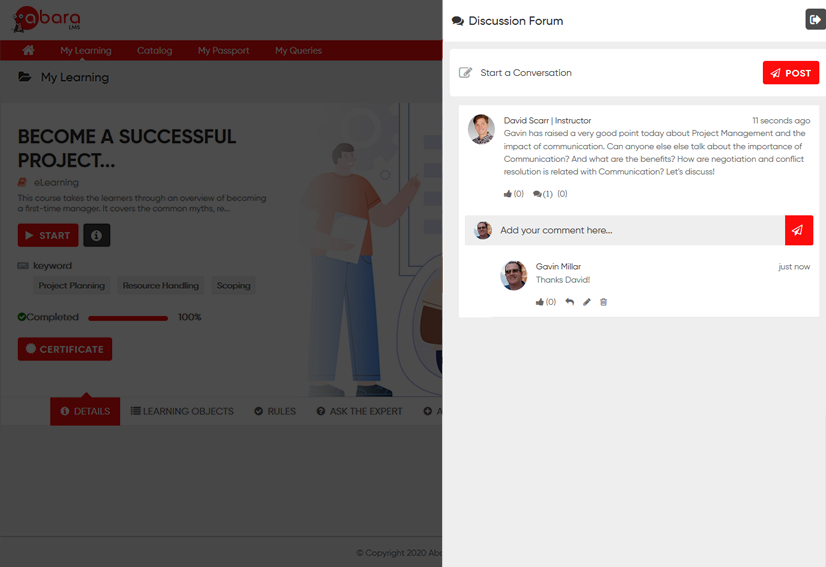

SOCIAL LEARNING
Discussion forums for two-way communication with Instructors and Experts and Learners enrolled on a course
One-on-one Q&A with Experts after an eLearning, ILT or vILT course
Group chats (coming soon!)
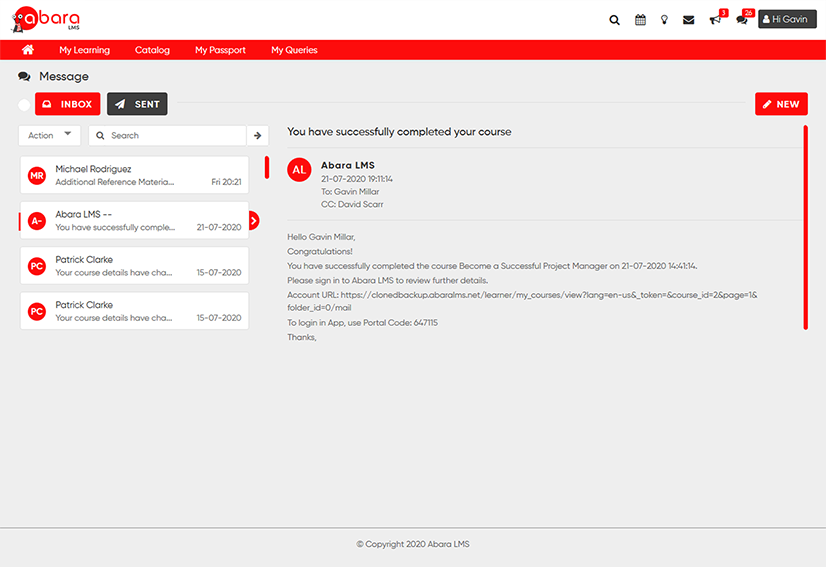
COMMUNICATION FEATURES
Automated reminders
Announcements
Modern message center
Administration ↔ Learner ↔ Instructor ↔ Expert
Course calendar

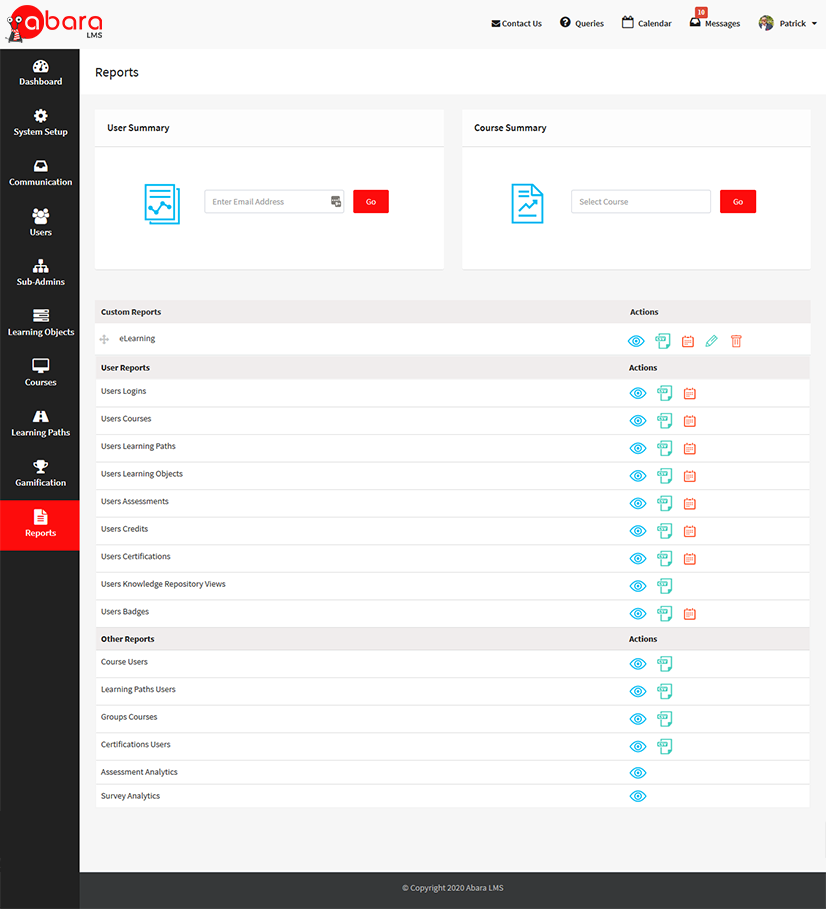
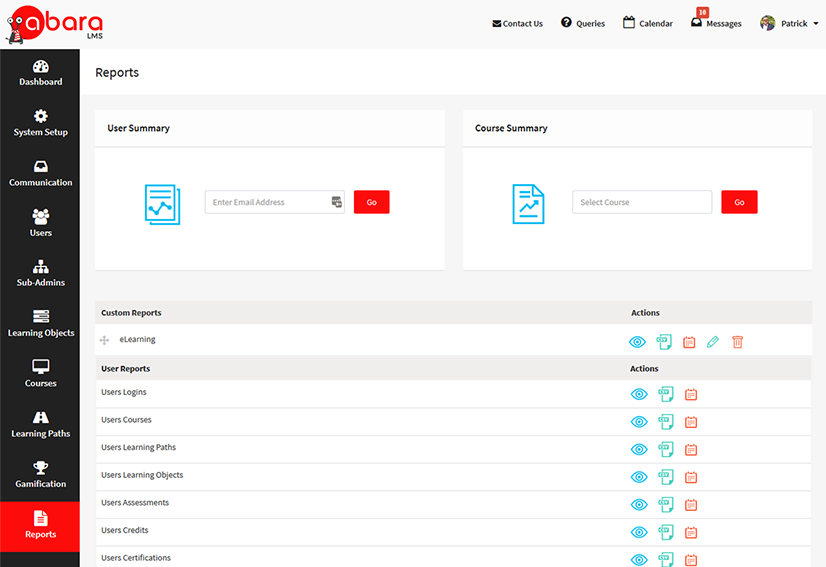
REPORTING FEATURES
Administrator dashboard
User reports
Course reports
Learning path reports
Knowledge repository tracking
Custom reports
Report scheduling
Certification reports
Course credits (CE/CPE)
Survey analytics
eCommerce transaction reports (for eCommerce add-on)
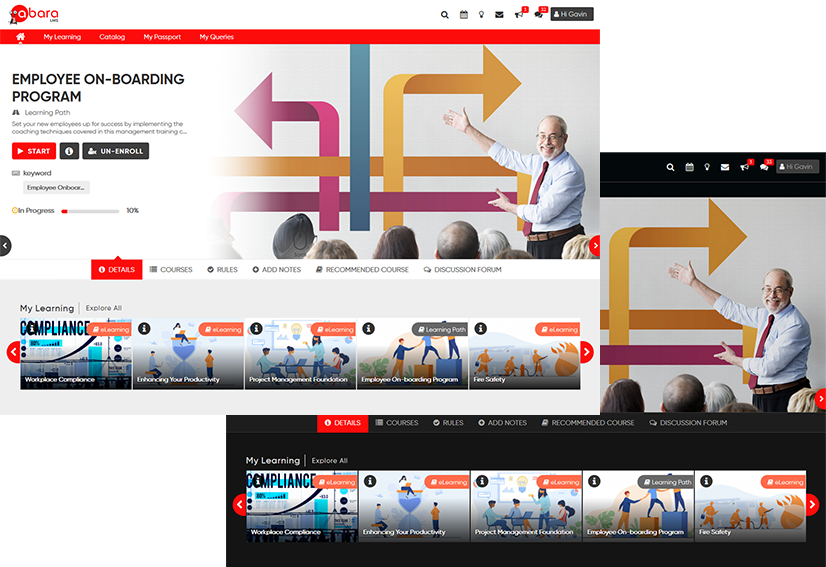
LMS PORTAL FEATURES
Single portal for the entire organization
Multiple portals for:
- Parent company/HQ
- Subsidiaries
- Franchisees
- Brands
- Partners
- Distributors
- Customers
Note: The default plan includes one portal. Each portal carries one branding scheme and logo.
Multiple portals are advised for:
Organizations with multiple entities, brands, and/or groups
Administration and data segregation
eCommerce add-on for paid customer training and certification
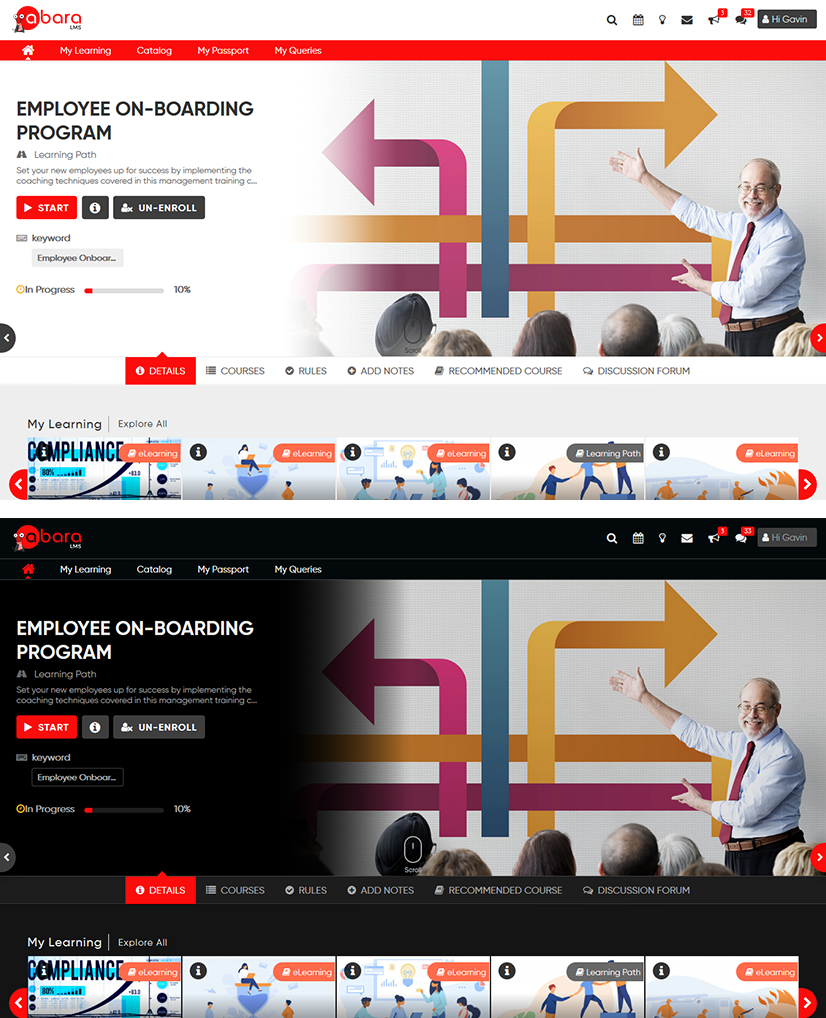
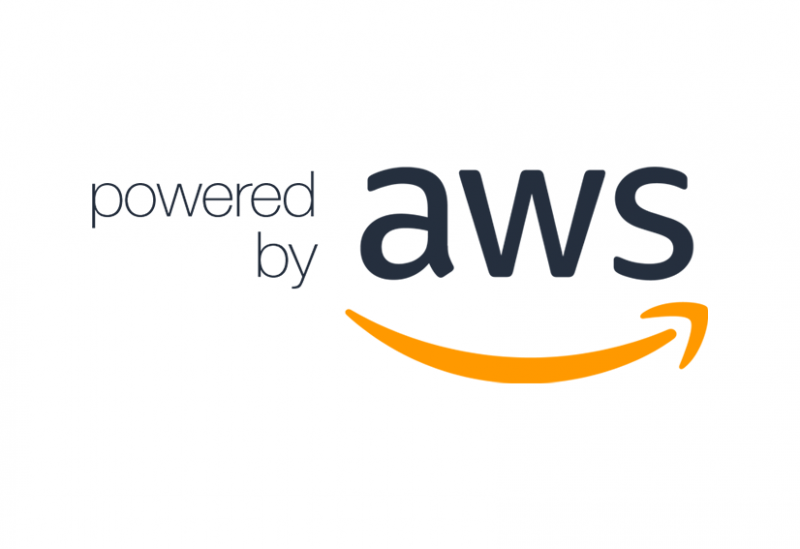

ADVANCED OPTIONAL FEATURES
Secure Amazon AWS hosting (worldwide locations – US, UK, EU, India, SE-Asia, and Australia)
Standard server configurations for usage that falls within fair usage policies
Advanced server configurations for:
- High usage requirements
- Multi-location server setup
- CDN setup
- HD video libraries
Multi-portal setup
Learner support
Administrative services
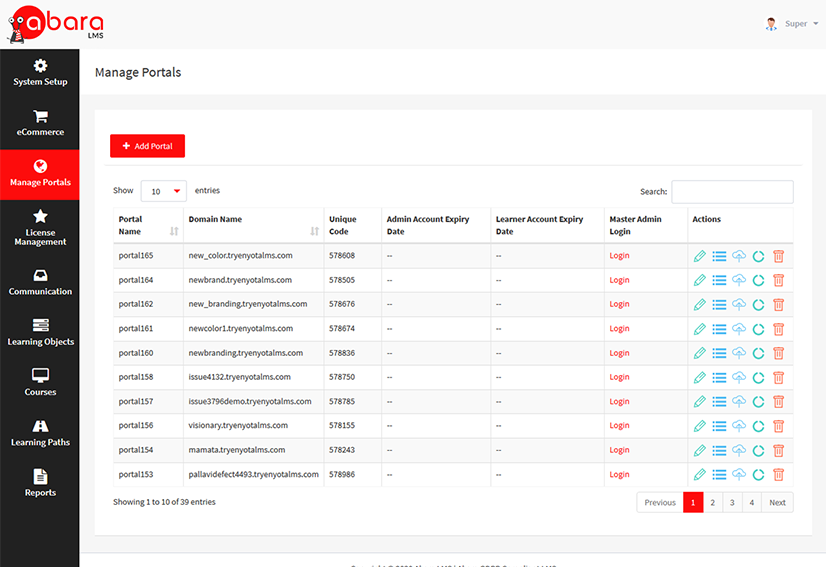
MULTI-TENANCY FEATURES
Advanced training architecture for large enterprise or diversified conglomerates
- Multiple portals for
- Parent company/HQ
- Subsidiaries
- Franchisees
- Brands
- Partners
- Distributors
- Customers
Client portal configuration
Push splash page to client portal
eCommerce license Management
Create and configure features
Enable/disable client portals
- Email template
- Master Administrator
- Super Administrator
- Super Administrator content management
- Create, edit, and delete learning objects, courses, and learning paths
- Assign and unassign in bulk
Client portal license management
- Super Administrator reports on:
- Client portal login
- Usage pattern

TEST DRIVE THESE SAAS-BASED LMS FEATURES WITH A 30-DAY FREE TRIAL!

